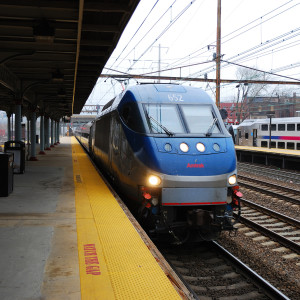I recently read an article that summed up the path that some people feel they are on in their lives. This part particularly stood out to me:
“For most of us, childhood is kind of like a river, and we’re kind of like tadpoles. We didn’t choose the river. We just woke up out of nowhere and found ourselves on some path set for us by our parents, by society and by circumstances. We’re told the rules of the river and the way we should swim and what our goals should be. Our job isn’t to think about our path — it’s to succeed on the path we’ve been placed on, based on the way success has been defined for us.”
Of course, not all Americans see themselves as tadpoles limited by the river where they were born. A 2014 Pew Research survey revealed that 57 percent of Americans disagree with the statement: “Success in life is pretty much determined by forces outside our control.” And 73 percent responded that it is very important to work hard in life to get ahead.
Working hard is indeed important, but, for many Americans, that is not enough to get ahead. Try as they might, some people, like the tadpole, are not the masters of their own fates.
Like it or not, where a person is born and ultimately lives is a major determinant of successful social and economic outcomes. Economic research shows “place” puts a geographical limitation on opportunity.
Consider the limitations “place” puts on some people born in Dallas. By all measurements, Dallas has one of the strongest economies in the nation. But if you live in some parts of long-neglected southern Dallas, you are unlikely to live near many jobs. Southern Dallas has seen a decline in job growth of 16 percent since 2000, even as the area’s population has grown more than 7 percent.
One clear reason some struggle to get a decent-paying job is they often rely on transportation systems that do not connect enough workers to jobs in a reasonable time period. A University of Texas at Arlington study reports that people who live in the part of the city that is most dependent upon buses and rail lines can only get to about to 4 percent of regional jobs in 45 minutes. (When a family earns $30,000, the median household income for southern Dallas, spending $700 to own a car isn’t viable.)
I grew up in a southern Dallas neighborhood where it can take up to two hours to get to a job located only seven miles away. The neighborhood is within the city limits, but 92 percent of its residents have access to less than 1 percent of the city’s jobs.
The challenges that some Dallas residents face is not unique to their city. Communities have been torn apart to make room for highways in places like Chicago, Denver and Detroit. And finding transportation access to good-paying jobs is a reality residents in a number of American cities face.
In Nashville, according to a new Institute for Transportation & Development Policy report, less than 23 percent of jobs in the city are accessible by a 10-minute walk or bike ride to a transit station. The report finds that “service is either too infrequent and/or not close enough to the greatest concentrations of where people live and work.”
If we are truly interested in making upward mobility a reality for all Americans, cities nationwide should pursue a range of improvements to help their most marginalized communities.
Here are several key changes to consider:
- Provide more transit options and accessibility for commuters. This includes more streets and sidewalks that allow for more biking and walking.
- Expand bus and rail offerings that are attuned to the needs of the residents the transit system serves most.
- Create partnerships to address transit gaps. Lyft is piloting flat rate $2.50 rides to the grocery store for low-income families living in food deserts in Washington. Those are innovative market solutions.
- Create affordable housing closer to better-paying jobs.
- Invest in low-income communities so employers will want to create jobs there.
If we want people to succeed beyond the “rivers” of their birth, we must remove impediments to their progress. Their paths may be littered with the debris of systems that do not serve them well. But innovative solutions that reflect our commitment to compassion and equality will ensure our neighbors have the basic services and opportunities to lift them out of poverty.

